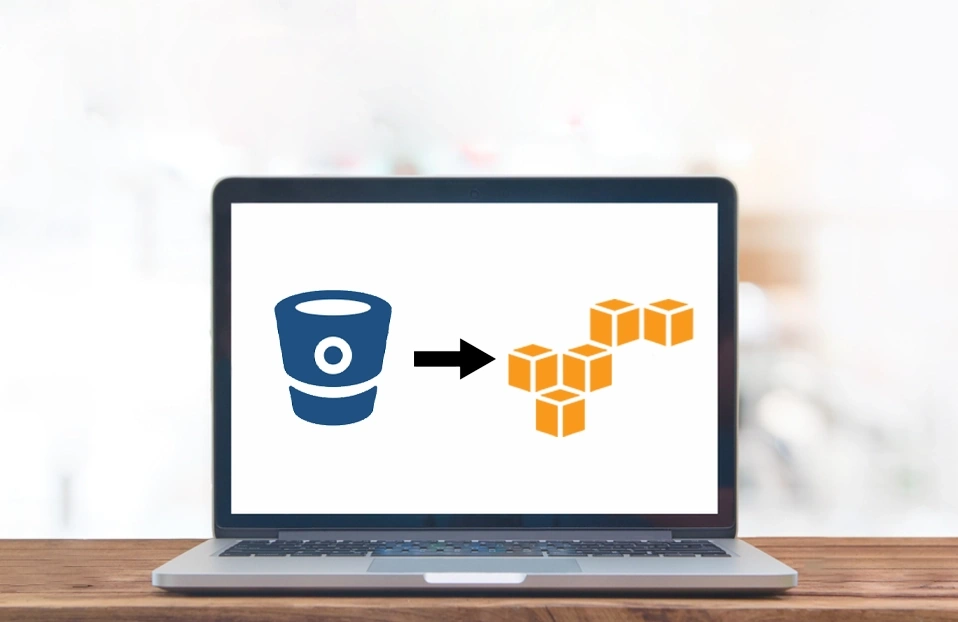At Surekha Technologies, we recognize the profound impact DevOps has had on modern software development and IT operations. By bridging the gap between development and deployment, DevOps accelerates software delivery while enhancing reliability and efficiency. To thrive in this fast-evolving industry, DevOps engineers must be proficient with tools that automate workflows, foster collaboration, and enhance scalability.
In this guide, we’ll introduce you to the top 10 DevOps tools every engineer should master. From containerization (Docker, Kubernetes) to CI/CD automation (Jenkins, Git) and infrastructure as code (Terraform, Ansible), we’ll explore essential tools that streamline deployment, configuration management, and monitoring. Each tool is detailed with its key features, industry use cases, and real-world applications.
Whether you're a beginner building a strong foundation or an experienced professional refining your expertise, this guide will help you stay ahead in your DevOps journey. Let’s explore the tools powering leading tech giants like Netflix, Google, and LinkedIn!
1. Docker
Why You Need It: Docker simplifies application deployment through containerization, ensuring consistency across different environments.
Key Features:
- Lightweight and portable containers
- Simplifies dependency management
- Seamless integration with CI/CD pipelines
Real-World Example: Netflix leverages Docker for rapid deployment and scaling of its microservices architecture.
2. Kubernetes
Why You Need It: Managing multiple containers efficiently requires orchestration, and Kubernetes is the industry standard.
Key Features:
- Automates scaling, deployment, and container management
- Self-healing capabilities
- Built-in load balancing and service discovery
Real-World Example: Google, the creator of Kubernetes, uses it extensively in its cloud infrastructure. Spotify also relies on Kubernetes to manage its microservices ecosystem.
3. Jenkins
Why You Need It: Jenkins enables continuous integration and continuous delivery (CI/CD) automation.
Key Features:
- Supports over 1,000 plugins
- Automates build, test, and deployment processes
- Integrates with Git, Docker, Kubernetes, and more
Real-World Example: Companies like eBay and LinkedIn use Jenkins to streamline their CI/CD workflows, reducing errors and accelerating software delivery.
4. Git
Why You Need It: Git is the foundation of modern software development, enabling efficient code versioning and collaboration.
Key Features:
- Tracks changes in the codebase
- Supports branching and merging for parallel development
- Works seamlessly with GitHub, GitLab, and Bitbucket
Real-World Impact: Microsoft adopted Git for managing Azure DevOps projects, enhancing global team collaboration.

5. Ansible
Why You Need It: Ansible simplifies configuration management and application deployment.
Key Features:
- Agentless architecture using SSH
- Automates repetitive server provisioning tasks
- Supports infrastructure as code (IaC)
Real-World Example: NASA utilizes Ansible to automate server configurations, reducing deployment times significantly.
6. Terraform
Why You Need It: Terraform excels in managing multi-cloud infrastructure across AWS, Azure, and GCP.
Key Features:
- Uses a declarative configuration language
- Creates reproducible and scalable infrastructure
- Supports multiple cloud providers
Real-World Example: Airbnb employs Terraform to provision its cloud infrastructure, ensuring consistency across environments.
7. Prometheus
Why You Need It: Effective monitoring and alerting are crucial in DevOps, and Prometheus is a top choice.
Key Features:
- Collects time-series data for applications and infrastructure
- Features a powerful query language (PromQL)
- Supports customizable dashboards via Grafana
Real-World Example: SoundCloud relies on Prometheus to monitor its services, ensuring high availability.
8. Grafana
Why You Need It: Grafana provides visualization and analysis for monitoring data, helping teams gain insights into system performance.
Key Features:
- Customizable, interactive dashboards
- Integrates with Prometheus, Elasticsearch, and more
- Provides real-time alerts and notifications
Real-World Example: Finance and e-commerce industries use Grafana for operational data visualization and early anomaly detection.
9. Nagios
Why You Need It: Nagios specializes in infrastructure monitoring, particularly for network performance and availability.
Key Features:
- Monitors servers, applications, and network devices
- Provides alerts for potential issues and failures
- Extensible with plugins
Real-World Impact: Yahoo! employs Nagios to monitor its complex IT environments, ensuring minimal downtime.
10. Splunk
Why You Need It: Splunk is a leading log management and analytics tool for DevOps teams.
Key Features:
- Real-time log analysis
- Customizable reports and dashboards
- Centralized logging with integration across DevOps tools
Real-World Example: Coca-Cola leverages Splunk to monitor IoT devices and optimize production efficiency.
Why These Tools Matter
Adopting the right DevOps tools can significantly enhance software development and operations by:
- Automating repetitive tasks
- Improving collaboration among teams
- Enhancing system reliability and performance
For instance, Docker and Kubernetes together create a scalable, portable application architecture, while Prometheus and Grafana ensure continuous system monitoring for improved uptime and user experience.
Final Thoughts
For aspiring or experienced DevOps engineers, mastering these tools is no longer optional—it’s a necessity in today’s fast-paced IT landscape. As companies continue adopting DevOps methodologies, staying updated with these technologies will give you a competitive edge.
Start small, experiment with Docker and Jenkins in a test environment. Gradually integrate Kubernetes for container orchestration or Terraform for infrastructure management. Once you dive in, you’ll experience how these tools revolutionize software delivery.
What’s your favorite DevOps tool, and how has it improved your workflow? Share your thoughts—we’d love to hear your experiences!
Conclusion
Mastering DevOps tools is no longer optional—it’s a necessity in today’s fast-paced IT landscape. Whether you’re an aspiring DevOps engineer or a seasoned professional, gaining hands-on experience with essential tools like Docker, Kubernetes, Jenkins, and Terraform will significantly enhance your career prospects. These tools drive automation, improve collaboration, and ensure system reliability, making you an invaluable asset to any organization.
At Surekha Technologies Pvt Ltd, we offer expert-led training and DevOps Consulting Services, covering all these critical tools through real-world projects and hands-on labs. Our structured learning approach ensures you gain practical knowledge that directly applies to your job, helping you stay ahead in the industry.
And if you love reading about the latest tech trends, tools, and best practices, explore our blogs: https://www.surekhatech.com/blog.
Stay ahead in the DevOps world with the right training, resources, and expert DevOps Consulting Services—your journey to becoming a DevOps expert starts today!



